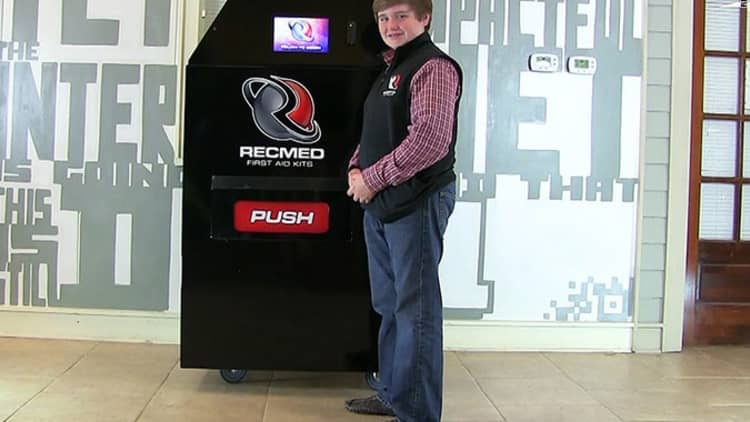A change is coming to private investing markets, and it could revolutionize how small businesses are financed: unaccredited investors can start buying stock in start-ups.
The JOBS Act took effect in 2012, helping pry open the initial public offering pipeline that was effectively welded shut in the wake of the global financial crisis, fostering millions of dollars of investments in burgeoning start-ups. The only ones left out of the equation were ordinary Americans. But based on President Barack Obama's speech, they probably didn't expect it.
"Because of this bill, start-ups and small business will now have access to a big, new pool of potential investors — namely, the American people," Obama said at the signing ceremony for the act. "For the first time, ordinary Americans will be able to go online and invest in entrepreneurs that they believe in."
For years, this portion of Obama's JOBS Act pledge went unfulfilled, as the Securities and Exchange Commission dragged its feet in the final stages of the regulatory process that would allow unaccredited investors to begin backing growing companies. As of Monday, it all changed.
Title III of the Jobs Act has gone into effect, and with it, unaccredited investors are now allowed to invest alongside accredited investors (people with a net worth of $1 million, or who meet other income designations) in equity of start-ups — not just their products.
In other words, ordinary Americans with a lower net worth are no longer excluded from the same investment opportunities as wealthier, accredited, investors. They're not relegated to being able only to back a Kickstarter project, to receive a product when it's complete.
And that means Americans can take the same crack at a hot start-up's prospects as if they were Marc Andreessen, the Silicon Valley investor who has backed start-ups like Facebook and Airbnb. Prior to the rules change, investors could crowdfund for products like the Oculus VR headset, which took in $2.44 million in 2012, but didn't issue a share to its consumer-investors.
Read More'Shark Tank' judge: What entrepreneurs should never do
Oculus, however, sold shares to Andreessen Horowitz, the investor's venture capital firm, which generated a reported eight-times cash return. There have already been crowdfunding successes for accredited investors like the ones that bet on Zenefits through online investment platform WeFunder, according to Nick Tommarello, who founded the website more than four years ago.
One Zenefits backer, who bought in for $5,000, turned a profit of more than $1 million on the health-care start-up's stock by selling shares before its $4.5 billion valuation was .
"Banks don't take risks and VCs only invest in hot start-ups," Tommarello said, adding, "but the expectation is probably that you're going to lose money."

New prospective investors shouldn't expect outsized returns like the one Zenefits' early investors pocketed. Even supporters of crowdfunding are quick to point out that the risk profile of start-up investing is completely different than the stock market, and that the growing business is subject to separate regulatory requirements from companies listed on exchanges.
"The level of information about an entity available to potential investors in crowdfunding ventures will be somewhat limited, and certainly less than a traditional investment vehicle would be required to disclose," said Mike Brodsky, a director in Deloitte Advisory's forensics and investigations group. "Investors considering purchasing securities through crowdfunding should not expect the same level of diligence."
Read MoreRemember the 14-year-old who turned down $30M? Now he wants $50M
The regulation change is a historic one, but don't expect your average start-up stock trading platform (and, there are plenty) to look like — for example — a ScottTrade account.
Start-up equity investing can still take plenty of forms, not just cash-for-stock, said Dara Albright, longtime proponent of crowdfunding. It may include debt deals, or a combination of stock and products — a hybrid of crowdfunding and actual investing.
"This is going to change everything," Albright said. "We're going to see more creative types of investing."


